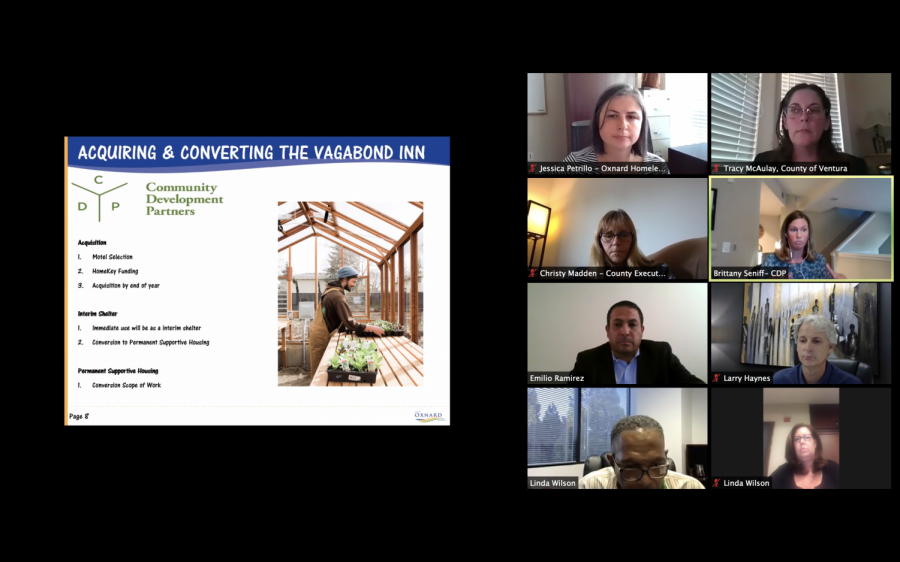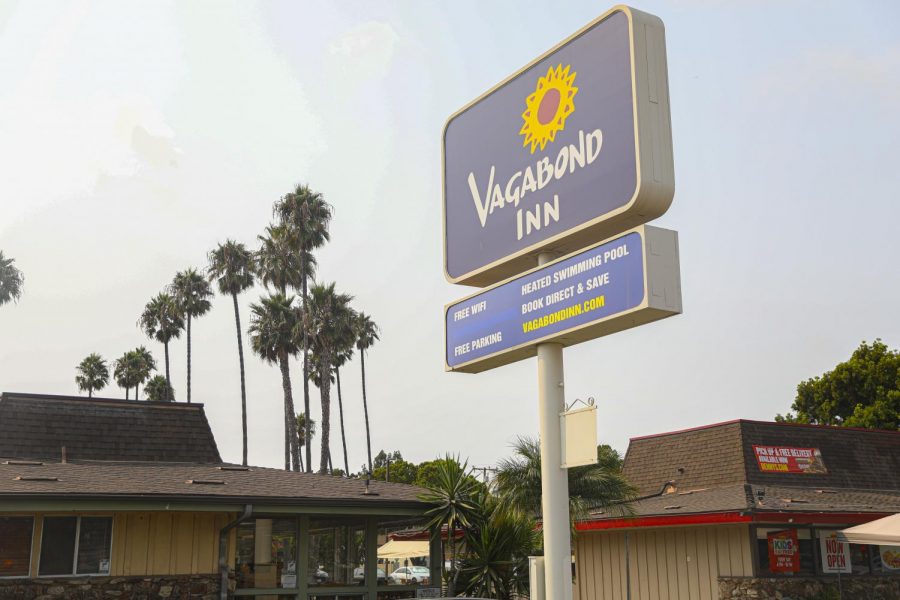City of Oxnard works to convert local motel into a homeless shelter
The city of Oxnard is considering the Vagabond Inn to provide housing for homeless people on Tuesday, Sept 8, in Oxnard, CA. Photo by Ryan Bough
September 12, 2020
On Sept. 2, 2020, California Governor Gavin Newsom announced that $600 million in grant funding would be used to fund Project Homekey. Project Homekey is a program that will offer sufficient permanent supportive housing units to the homeless population in California. The funds are being made available in competitive funding to local governments across California.
The funds will be used to acquire and rehabilitate properties including motels to continue to shelter Californians experiencing homelessness during COVID-19. The plan is to ultimately convert them into permanent housing for homeless people.
Project Homekey was created from the idea of Project RoomKey. Roomkey provided housing for 450 unsheltered people in the last few months but it was only an emergency response. It was an effort to provide non-congregate sheltering for people who were homeless and at-risk for COVID-19 from April through July. RoomKey is going to merge into a HomeKey, a strategy that offers a more permanent solution.
California’s budget of $1.3 billion would be used to acquire hotels, motels, or other properties for homeless people. California has $9.5 million reserved for the Federal Cares Act. From the Cares Act, Ventura County has approved $3.5 million. Now there is an opportunity to receive funds from the Federal Cares Act to purchase the Vagabond Inn in Oxnard.
Emilio Ramirez, Oxnard Housing Director explained, during Oxnard’s first virtual community meeting, the reason why the city is moving very quickly on this initiative.
“There wasn’t much time to turn around, we had to act quickly. What happened is in a very very short period of time we needed to be able to submit an application to the state or the county,” Ramirez said.
The city hosted its first virtual community neighborhood meeting on Sept. 2, 2020. During the meeting, the community could ask questions regarding the plan to acquire the Vagabond Inn. The panel consisted of Ramirez, members of Mercy House, and the Community Development Partners (CDP). Mercy House and CDP are the developers as well as operators for the project.
Tracy McAulay, who works for the County of Ventura and the County Executive Office, explained the importance of Homekey.
“Homekey will not only address the continuing health needs of people experiencing homelessness but it’s really one of the largest expansions of housing for people experiencing homelessness in recent history,” McAulay said.

To meet Federal Care Act Coronavirus release fund deadlines, local communities had only one month from the day of the notice of funding availability to find a property and submit an application under the geographic priority. This was due to the high competitiveness between the counties of California. From all the places that CDP reached out to, the Vagabond Inn was the best option. Brittany Seniff, Development Manager with CDP explains why Vagabond is the best fit.
“We reached out to all the motels, we looked at who was interested and who would just really be a good site for this type of use and since Vagabond had done project Roomkey and had kind of already put this model into effect, you know with great success, we thought they would be a really good option,” Seniff explained.
The Vagabond Inn would be a private purchase by CDP and operated by Mercy House. CDP has offered $13 million to acquire the Vagabond Inn. The Homekey funding that they will received will be paired with other fundings sources.
“Sources like low-income housing tax credits as well as other programs available for affordable housing by the state so all that put together will help to acquire the site,” Seniff explained in detail.
The motel would be a non-congregate shelter for a while and later turned into permanent supportive housing.
“At the beginning, it turns into a shelter and then it has to convert within a two year period to permanent housing,” Ramirez explained.
A second community neighborhood meeting will be held in the future.









